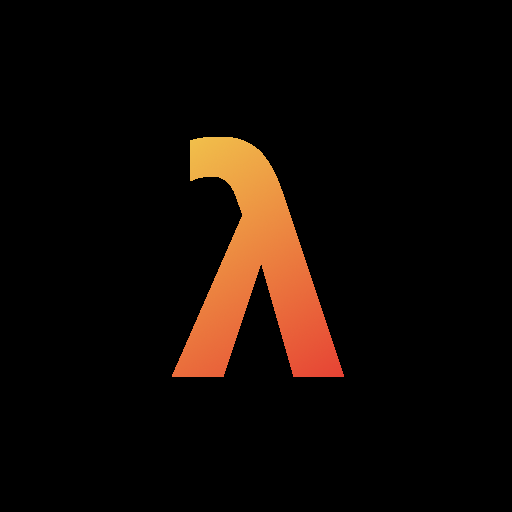

FWIW due to Lemmy’s size, I think it’s actually more common to scroll Local or All rather than Subscriptions, so you’re probably getting votes from lots of random people rather than subscribers to this community specifically.


FWIW due to Lemmy’s size, I think it’s actually more common to scroll Local or All rather than Subscriptions, so you’re probably getting votes from lots of random people rather than subscribers to this community specifically.


Heads up with modern git you can now just use git clone --recursive and it will clone all sub modules automatically.


Godot is written in C++ not Rust…
And Little Snitch and TripMode, and various other apps and *nix command line tools lol


I’m glad they shut it down. An inaccurate tool is worse than no tool, especially if teachers are using it to check student essays and punishing students for false positives…
Even just more generally, people were trusting these detection tools not realizing how inaccurate they were, which causes huge problems both due to false positives and false negatives. Better to remove the useless tools now and work on a better solution, if one is even possible which I’m not sure it is.


I’m glad I saw this comment because I was also about to skip it, but found the article to be a worthwhile read as well. Thanks for sharing it.


The last time I updated my resume, I took a bit of a different approach to formatting it that I think worked really well. Instead of the standard sections, I wrote it in prose where I basically list each job and wrote a couple of short paragraphs describing what I worked on and things like if/when I was promoted (as in some companies I had multiple titles as I was promoted up). Having been on the hiring-people side more often than the getting-hired side, I find it much easier to read than a big list of bullet points and a (IMO useless) “list of technologies I know” section.
To answer your question of where I put it, yes I put it as another “job” in my experience section. So after my startup folded, I was working on one of my personal projects (an iOS app that’s in the App Store that I previously worked on as my job as an indie developer and had picked back up). In this case I modernized it to properly support the latest iOS versions and devices and started porting it from Objective-C to Swift.
This worked out great as I had essentially no gap in my resume since I started working on it again right after I stopped working on the startup. So even though I wasn’t getting paid, it showed I was working on something at least (and in this case, something on the appropriate level since I was rearchitecting the code).
Here’s a part of that section as a reference:
I approached the project as a senior engineer cleaning up and modernizing code written years ago by a junior — who happened to be me. Within a few weeks I was able to fix all of the core issues preventing its use on iOS 14, modernize the UI, and remove all deprecated APIs (some going all the way back to iOS 3).
In addition, I’ve been working on a major re-engineering of the data model, porting the entire app from outdated Objective-C to modern Swift 5, and beginning to add new user facing features allowed by the new data model.
I also linked to the GitHub page so they could see the work I did.
As for your question about when a project crosses into resume territory, I would argue any non-trivial project is fine. Even if it’s a new project you start from scratch, I think as long as it’s the type of work your would be doing if you were hired (in my case I was doing architecture work, etc) or even if say I had started a non-trivial project in a new language I didn’t know just to learn it (let’s say I started a non-trivial Rust project or something) I think it would also be fine. And I don’t think it matters if you’ve finished it, in progress work is fine as long as it’s on Github so they can review it. It’s really up to you, but I think the point is just to show you continued to work at your “level” and/or continued to learn it’s fine.
This is all just my opinion both from having used it successfully in my own resume and from having been part of the hiring process of many developers, but I can at least say I didn’t get any negative feedback about it and I did get the job. This was with a full 6 month “gap” after ending my last position.
My Github username is the same as this username so you can see my projects there if you want (the one I’m referencing here is called iSub), and I’m happy to DM you my resume if you want to see it as it contains personal information I’d rather not share publicly like my phone number (though I guess I could redact it and just post a link, this profile isn’t exactly meant to be private or I would have used a different username).
Hope that helps!


I feel like you just answered your own question of why people don’t like VB.NET and prefer C#. Per your own words you have two languages that are “just as good” except one of them needs settings adjustments or it’s not as good, and also has “alien” syntax which makes it harder for other developers to work on the code and makes it harder for you to move to other C-style languages (basically every currently popular language).
So if at best they’re “just as good”, then the obvious choice is C# which requires no settings change and has familiar syntax. Especially so if you can work in both just fine.
It’s not just some “god complex” thing, it’s mostly just practicality.
Or Matrix if it’s meant to be more “Discord style”


Also I would say go for the masters degree if it’s something you want personally for yourself, but don’t do it if it’s solely for career growth as honestly I think it’s unnecessary.


I don’t even have a bachelors degree, and certainly no masters and I’m doing just fine. I worked at a FAANG company for a few years as well, and the lack of a degree was a complete non-issue during the hiring process. All they cared about was my experience and how well I did in the screening and interview. My view on this is obviously biased due to my personal experience, but I think that if you’re a good self-learner that 2 years of building stuff will get you a lot more value than 2 years in a masters degree unless you’re going for a very specific field that requires one.


If you like your current job, don’t leave. Simple as that. If you start the dislike it or feel you’re not growing, then leave. It’s really that simple.


I wouldn’t worry about resume gaps. I’ve found that as long as I’m working on some kind of non-trivial personal project (in my case, usually something I have on Github so employers can see it), I can put it on my resume to fill that gap and it’s not a problem.
Also, since you still have a job, it’s actually the best time to start applying since you can just keep applying and interviewing until you find something while still having a job and receiving a salary. You are clearly unhappy there and are not growing, so there’s no reason not to start the process.
Obviously since you’re still there you can’t just post to LinkedIn saying you’re looking (which is how I found my last job, after a more than 6 month gap btw–though I was working on a personal project during that time as mentioned), but you can start reaching out directly to companies.
Even if it takes 6 months to find something, the sooner you start the better.
Yeah I have a love-hate relationship with it haha. We used it for our backend and it was rock solid for almost a decade before the startup folded due to the pandemic. I don’t think we ever had any unit or integration tests lol, but pretty much if it compiled and the code looked correct it worked and bugs were generally easy to resolve. It was also super simple to deploy because it’s just a single binary and it handles threading really well so you only need to run a single instance per frontend VM to utilize all of the machine’s resources. Also for backend usage, there was almost always a well written built-in package for about anything we needed either in the standard library or the “extended standard library”.
With that said, the language itself…yeah I don’t really love it. Especially coming from other modern languages it’s missing so many features (basic stuff like generics, etc) and has “weird” (or maybe just different) code patterns. It always took a while to start “thinking in Golang” after working on our other code bases for a while, whereas I could bounce between other languages easily.
So yeah, for performance and reliability it was a 10/10 for us, but the language itself I felt like was a 5/10 for me.


FYI Mono is essentially dead now or at least no longer necessary as .NET 6 is open source and cross platform, so you can just use regular .NET on Linux now.


I vote option 2
Thanks, yeah looks like it was a Memmy app bug. I just opened the post in a browser and the link is there.
I feel like I also had the “if it compiles it works” experience with Golang as well, but holy cow is it a much simpler and easier to work with language. I want to like Rust, I really do, but even just the syntax is painful to look at lol.
Also the cult-like community is a bit off putting…never seen anything quite like that for any language…
It does seem to have some genuinely solid benefits though so maybe one day I’ll get into it.
I’m genuinely interested in reading this blog post but looks like you forgot to link it
A monad is just a monoid in the category of endofunctors, what’s the problem?